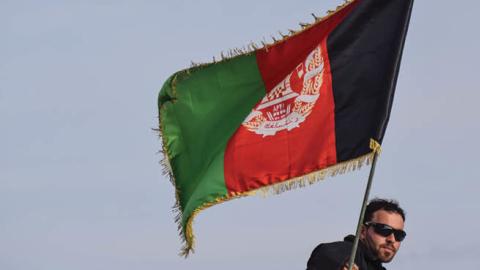The Taliban’s decision to back out of attending a peace summit, scheduled to start later this week in Turkey, seems to have prompted the Biden administration’s announcement of a full withdrawal of American forces from Afghanistan by Sept. 11. The Taliban will now most likely take even less interest in talks, as their goal all along was to secure a U.S. military withdrawal.
The Biden administration was hoping that, at the conference scheduled to be held in Turkey, it would get the Taliban’s agreement to an extension of the May 1 deadline for withdrawal of U.S. troops. By refusing to show up, the Taliban forced President Biden, who opposes keeping troops in Afghanistan, to announce a final withdrawal date.
The Taliban have always sought to run out the clock on the U.S., reflecting Taliban founder Mullah Omar’s belief that “Americans have all the clocks, but we have all the time.” They have shown little interest in sharing power, ending violence or defining the terms of a lasting peace.
Instead of betting everything on an elusive deal with the Taliban, U.S. interests would have been better served by working more closely with the Kabul government while planning for an American military withdrawal. That option can still be exercised instead of chasing an agreement with the Taliban.
The Afghan National Security Forces (ANSF) are not the South Vietnam army, which collapsed soon after American military withdrawal. Over the last three years, Afghan forces have undertaken more than 90 percent of all military operations, depending on NATO forces only for air support, technical intelligence and special operations capability.
It takes 40 years for an officer to become a general from second lieutenant, and Afghanistan has not had the time for a reliable senior officer corps to develop. That, more than lack of fighting ability on a daily basis, is the real weakness of Afghanistan’s national security forces.
The U.S. could help build an Afghan air force and commit to providing means for Afghanistan’s security. The U.S. arms, subsidizes and trains the militaries of several countries, and there is no reason why Afghanistan cannot be on that list.
This would be a “nation supporting” plan rather than a “nation building” one. It would require treating the Kabul government as an American ally rather than a satellite, the minutiae of whose governance was deemed subject to approval by American diplomats.
It is important to remember that the Soviet-installed Najib regime in Afghanistan lasted for almost four years after the Soviet withdrawal, and its collapse in 1992 came only after the Soviet Union collapsed and could no longer support it financially or with arms. A U.S. withdrawal without a deal with the Taliban, but one that involves the Kabul government, is the option that was ignored by the Trump administration and has not been seriously pursued by President Biden so far.
The focus on U.S. withdrawal that shaped the Doha Agreement between the U.S. and the Taliban has led to a belief among the Taliban that they have defeated the U.S. and, after U.S. withdrawal, will restore the totalitarian Islamic Emirate they had created in 1996.
The Taliban have also gained politically from the impression, created by Americans talking to them directly, that the U.S. would abandon the Kabul government. President Ashraf Ghani is not a natural politician and often tends to do what he considers right without trying to win friends or influence people. Ghani’s many critics have been hoping for a U.S.-backed reallocation of power among Afghans, an idea that is at the heart of the proposed summit in Turkey.
But the desire for a power sharing agreement brokered by Afghanistan’s neighbors (Iran, Pakistan, China, Russia, India) and the U.S. has been rejected by the Taliban many times. Even now they remain adamant that their Emirate is Afghanistan’s legitimate government. The Taliban’s idea of power sharing is that in return for U.S. aid commitments, their Emirate promises to include some non-Taliban Afghans in a future Taliban government that would follow U.S. military withdrawal.
A course correction in U.S. policy is now needed. Absence of political support in the U.S. for America’s longest war, and President Biden’s unwillingness to expend political capital on the issue, has led to the plan for military withdrawal from Afghanistan. But just as the presence of U.S. troops did not bring peace to Afghanistan, neither will their departure. It is important to separate discussion of American military withdrawal from efforts for a lasting peace in Afghanistan.
The U.S. choice in Afghanistan was never just about leaving in a hurry and staying indefinitely. The U.S. must now set realistic targets for Afghanistan’s defense, commit to sustained and sustainable support for Afghan security forces and persist with diplomatic efforts that include talks with the Taliban but do not hand the country to them.
The U.S. military went into Afghanistan immediately after 9/11 to ensure that Afghanistan did not again become a center for global jihad and radical Islamism. American troops have stayed in Afghanistan for almost two decades, not because that was the plan but because there were 19 one-year plans. This might be the time to develop a long-term U.S. plan for Afghanistan’s future.
Read in The Hill


















